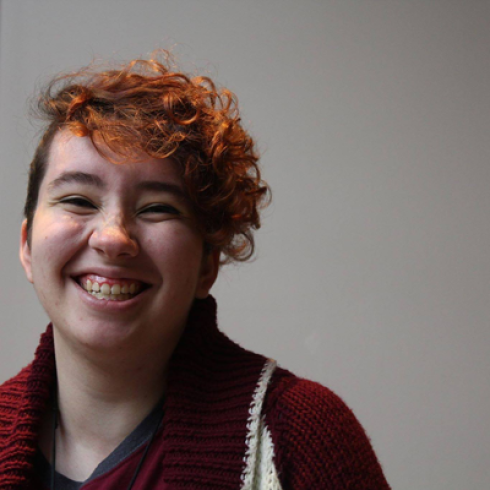I remember the first time I considered studying abroad. A bright envelope informing me that an anonymous alumni had recommended me for a study abroad program for teenagers and pre-teens sat in my mailbox, with my name printed clearly on it. For varying prices, the company would send children around the world for different lengths of time, teaching them leadership while they got to experience the world. I was hooked, it was exactly what I wanted. For years I begged my parents to go, and for years they said no. While I’m certain most of the reason I couldn’t go was the cost, I was convinced that the sole reason I was not was because my parent’s didn’t think I was ready.
Seven years later and that was right. I’m still not completely ready for this adventure, and I’ve been here for three months. The only difference is that little me was convinced I wasn’t ready because I didn’t have life experience. I thought knowing how to make my bed or clean my room would make me ready, but I needed more than that. When I first dreamed of these experiences, I was highly anxious and not coping well. I thought studying abroad would fix that, but seven years of managing my symptoms and three months into the program and I assure you, that’s incorrect.
It’s really easy to loose yourself when you’re 4,000 miles from home. Quite literally everything I had relied on as stable had changed. My favorite foods are not sold here, my family is not half an hour's drive away, I have to factor in time difference before I can message my friends, and the internet is known to cut out when I’m trying to skype my family. If things get difficult, I can’t just lay in my mom’s bed and talk it out with her until we come up with a plan to fix it, I have to figure out what to do and do it. Usually before she even wakes up. There’s a lot of growing up that has to be done, and the stress from that can manifest in different ways.
For me, I daydream. It’s an actual (unhealthy) coping mechanism called maladaptive daydreaming and it makes it difficult for me to focus, or even get out of bed some days. While my Facebook is littered with cute pictures and exciting adventures, I conveniently leave out days I live off of bread and rice, or the weekends that I don’t leave my room and watch a whole new series on Netflix. At first this made me feel isolated and guilty for not having the experience I’m expected to have, but then I realized something.
This is still my experience, mentally ill or not. And there has not been nearly enough conversation about mental illness in studying abroad. For something that literally uproots your life and displaces it for a few months, most of the conversations I’ve had about mental illness have felt hostile, as if someone was afraid of me for my illness. So I’m going on the record to say it’s normal, it’s okay, and it happens. I am mentally ill and abroad, and while sometimes I struggle here, I’d struggle back home as well. I am proud of myself for making this decision, and I don’t regret it for a second.
But here’s what I wish someone would have told me before leaving:
Studying abroad is hard. It might not be hard how you expect it to be, and it might not be hard right away. Sometimes the difficulty is being so distant from everything you were familiar with, sometimes the difficulty is missing your dog, sometimes the difficulty is seeing how the weather is nicer back home than where you are. Sometimes there isn’t a name for the difficulty and you’re just struggling. It’s alright, it’s normal, don’t let your fears keep you from studying abroad. Even if it isn’t everything you’re expecting it to be, it’s worth it.
Sometimes your problems are your fault. It’s a hard reality to come to, but it’s the only way to really make things better. I’ve spent the past week in a slump, convinced that nobody wanted to talk to or spend time with me. I spent a week inside watching Netflix and feeling bad for myself, but when I went outside and talked with people, I ended up having a really nice day. I went on a bike ride and got to see a park I didn’t know existed before. Maybe nobody was talking to me because I wasn’t talking to them.
You are not your disease. Going back to the first point, studying abroad is hard. It would make sense that your symptoms may get worse or old coping mechanisms might come back. It might make it really hard to cope, and it may make you do some stupid things, but your symptoms are not everything about you. Remind yourself that you are good, you’re only human, and that really, you’re amazing. The simple fact that you’ve made this decision and gotten this far already proves that you’re so much more than the hurdle you’re facing right now.
And if you don’t have these problems but want to help, the most important thing you could probably do is pay attention. If someone you care about starts to withdraw from themselves or shows other signs you may be worried about, talk to them. Be honest about it. Simply asking “Hey are you doing okay?” could really mean a lot to somebody struggling. If they open up to you, great. Keep your conversation private, and try to understand where the other person coming from. Don’t be really afraid if they say something that isn’t normal for you, it might be a regular symptom for them that they have under control. For example, when I’m very anxious I tend to only two or three specific foods. This can last for a few hours, or for weeks. I know how to handle it safely, but the acknowledgement without the fear is something I rarely get when I let others know. Unless someone is in immediate danger, simply recognizing their feelings is more than enough. And if they don’t want to tell you anything, that’s fine. Respect that, and remember that you tried. That might be all it takes for someone to trust you later if they need you.
If upfront confrontation may sound drastic or not your style, try inviting them to things. Don’t give up after just once. Anything from going to the zoo or asking to go grocery shopping is great. Anything to remind them that they’re still wanted despite how they might be feeling can help.
But most importantly: Take care of yourself. Ultimately your health and safety is your utmost priority. If you’re in a relationship of any sort that is affecting your mental health or daily functions, don’t be afraid to take time for yourself. You are not obligated to take care of anybody but yourself, so don’t feel guilty for taking time to do that.
Mental illness is nothing to be afraid of. It needs to be embraced and discussed instead of being held at arm's length and used as an objective measure of fitness for a program. I am amazingly strong for making the decision to study abroad, and I’m not letting anyone, least of all my mental illness, tell me that I’m not. And if you’re reading this? The same applies to you too.

Charlie (Charles) McDowell
I am a 20 year old Psychology and Intercultural Studies major escaping the suburbs of Chicago in search of an adventure. I can be found reading or writing most of the time, and love to talk to people. I've been daydreaming of traveling the world since I was a child, and am so excited that the time for that is finally here! Thank you for stopping by, I hope my stories are as helpful to you as these moments were for me.







